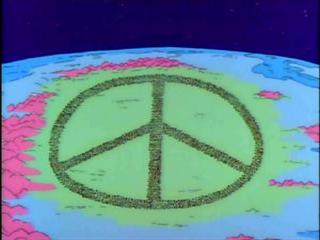Thanks to those who e-mailed to ask what I thought about California’s Proposition 8 and its aftermath. I didn’t post anything largely because I thought I’d said what I had to say about the gay marriage debate many times over.
I still do. But Caltechgirl, whose blog I haven’t visited nearly often enough in the last several months, hit many of the important points:
For the record, I voted NO on Prop 8, folks.
Now that THAT’s out of the way, let me get to my point. Last night’s protest rallies in West Hollywood and elsewhere did NOTHING to help the No on 8 cause.
The election is OVER. The ballots have been counted. The “No on 8″ side lost.
Sitting in a busy intersection, holding up traffic and waving signs from an election that’s past now doesn’t make people want to support you. It makes people think you are a bunch of whiny crybabies with nothing better to do than to hold them up in traffic. Which, as we LA folks ALL know, is sh***y without protesters blocking up the main intersections.
So get over it. Wipe your tears. Get up and fight back. The RIGHT way. The SMART way. Don’t make your opponents so upset that they resent you. That’s no way to “win friends and influence people.”
You looked like a bunch of sissies in front of a big bully last night. Seriously. Do you WANT to play to stereotypes? Do you think that’s anyway to bring people to your cause? Sure it rallies people who agree with you, but the majority of Californians (at least according to the vote) probably thought it was pathetic and predictable from a “bunch of whiny sissies”…
Last night’s protest here in New York appears to have been more dignified, but several essential problems remain:
Mitchell Stout, 41, an actor from the Upper West Side, said, “We want to have the freedom and liberty to express our love for our partners the same way any American has.”
One of the most pervasive beliefs about gays and lesbians is that we all suffer from arrested development and are driven by unexamined and unchecked emotions–we can’t deal with being told no by Daddy (either literally or as embodied by the state), and we deal with everything based on what feels good. When our most politically active men and women appear in public this way, all they do is reinforce that crap.
Increased gay visibility was accomplished in the context of the late ’60s and early ’70s, when reflexive posturing against The Man was the order of the day among trendy liberals. Unfortunately, like other leftists–gay, straight, male, female, white, black, yellow, other–the loudest gay activists seem to be stuck in that mindset.
Gays did not invent the entitlement mentality, we didn’t set it loose in the land, and given how many people just voted in Obama under the apparent assumption that he would make their kitchen-table problems disappear, we can hardly be considered its most egregious proponents. It may not be fair that we should have to work extra hard to combat that image, but it is a fact that any sensible, even-keeled person with a modicum of political savvy is aware of, even in California.
Along the same lines, I have my doubts about targeting religious organizations in these contexts. Yes, the Mormons contributed a lot of money to supporting Proposition 8, and they probably seem like a good target for gay opprobrium because a lot of Americans regard them as a bit weird. And not nice to women. Still, such demonstrations have a way of looking like protests against the moral and spiritual ordering power of religion in the abstract, an effect that’s hardly counteracted by appeals to the Mormon history of polygamy (where are people’s heads?) and soppy invocations of a government-sanctioned contract as an “expres[sion of] love.”
Once, convincing people that gay men and lesbians really did fall in love and form life-long partnerships was a real victory in and of itself, but the argument over marriage has evolved far beyond that point by now. As long as those against gay marriage are advancing sophisticated arguments about child-rearing and community building, its proponents are going to keep getting trounced when all they do is come back with effusions about love, prejudice, and ever-expanding rights.
Of course, it’s possible that I should be grateful that the pro-SSM activists at least seem to inhabit Planet Earth, Year 2008. Eric posts about a group of gay anarchists who are operating in such a fantasy land it’s almost touching. Almost. Eric realizes that Bash Back is not representative of the gay mainstream, but his point–that tactics that alienate Middle Americans are a great way to foment a backlash–is well taken.
Added later: I hadn’t noticed that Dale Carpenter had, naturally, posted about the first protests almost a week ago, too:
Here’s my advice to righteously furious gay-marriage supporters: Stop the focus on the Mormon Church. Stop it now. We just lost a ballot fight in which we were falsely but effectively portrayed as attacking religion. So now some of us attack a religion? People were warned that churches would lose their tax-exempt status, which was untrue. So now we have (frivolous) calls for the Mormon Church to lose its tax-exempt status? It’s rather selective indignation, anyway, since lots of demographic groups gave us Prop 8 in different ways — some with money and others with votes. I understand the frustration, but this particular expression of it is wrong and counter-productive.
Public protest against a constitutional ban on marriage for gay families is entirely justified. More than a mere vote, protests communicate intensity of feelings. They’re valuable in a democracy. Something incredibly precious was lost on Tuesday. Those who lost it should not be expected to go back quietly to producing great art and show tunes for everybody’s amusement.
That via Jonathan Rauch at IGF, who wonders whether the protests aren’t nevertheless an encouraging sign.
Added on 14 November while dressing for dinner: Have I linked enough people yet? Of course not! Robbie at The Malcontent weighed in several days ago:
What is required in these protests is a target. But the very nature of identity politics precludes the two most obvious demographics who voted for the initiative – Hispanics and African-Americans. Could anyone imagine a parade of mostly white gays and lesbians descending on black communities and churches in protest? No, and those pushing the protests know that tactic would never fly in America.
Why not go after Catholics, a demographic that supported the proposition with both cash and votes? First, because Catholics comprise roughly 25% of the American population. In addition, California is a heavily hispanic state, and hispanics are overwhelming Catholic. Would any smart GLBT organizer have their activists and supporters declare war on the Catholic Church and expect support from hispanics and a large portion of white voters? No, not even in that liberal state.
This leaves us with the Mormons, the red-headed stepchild of American religion. Secularists think they’re crazy, and other Christian denominations believe they’re a strange, deviant cult. We need look no further than the Republican primary to see that liberals and conservatives strangely converge when it comes to a low opinion of the Mormon religion. Right out of the gate, the protesters have a target that will be left wanting of defenders. Furthermore, the actual numbers of Mormons in this country is rather low.
They’re the safe target. The only target. The one target that invites almost no recrimination among a large swath of conservatives, liberals, the religiously devout, and atheists.
What these protesters should be asking is how a small, out-of-state religious denomination blew them out of the water when the media, history, every celebrity living and dead, and the demographic majority was soundly on their side. What these protesters should be asking is what went so wrong with their campaign and message that they could barely corral even their fellow gays into the voting booths.
I don’t know that I entirely agree about the Catholic part; anti-RC animus hardly goes unexpressed in gay circles, though it hasn’t really flared up since the AIDS protests a few decades ago. OTOH, this was a special case, given the California demographics Robbie cites. Happily, the demonstrations planned for tomorrow target political institutions.

